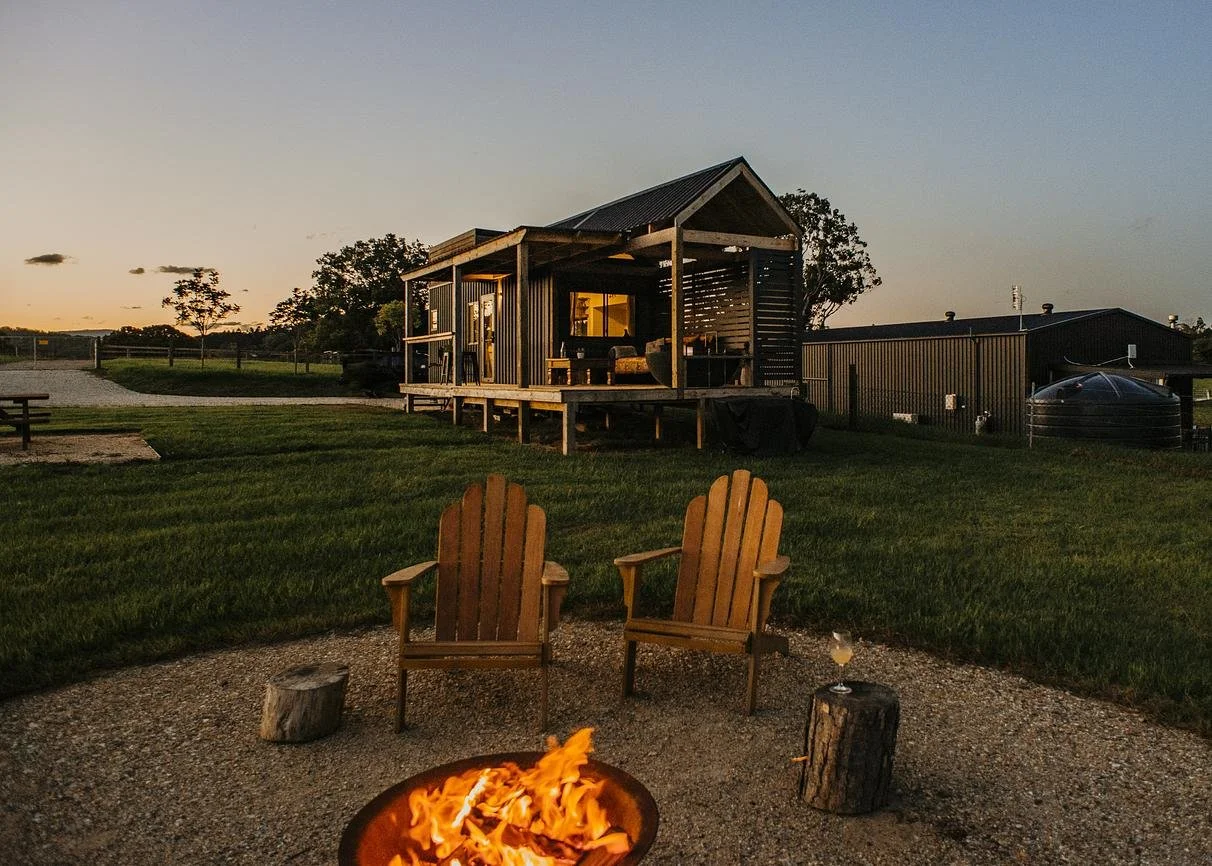tiny houses for airbnb income generation
Tiny houses are a booming trend, offering eco-friendly and cost-effective alternatives to traditional homes. In Australia, they provide an exciting Airbnb income opportunity beyond personal living spaces.
This guide will walk you through the process of acquiring a tiny house for Airbnb and the essential considerations before taking the plunge.
Why Choose a Tiny House for Airbnb Income Generation
Choosing a tiny house is a strategic and compelling move, offering affordability and cost-efficiency making them an attractive investment that reduces financial barriers for hosts.
Tiny homes provide unique guest experiences, setting hosts apart in the competitive short-term rental market. The intimate ambiance resonates with modern travelers seeking sustainable living.
Tiny houses are versatile, whether in scenic landscapes, urban backyards, or on wheels for mobility, they offer diverse hosting possibilities.
Lastly, the unique living experience—combined with cost savings, lower overhead, and a quicker return on investment, makes tiny house Airbnb rentals increasingly popular for both hosts and guests.
Benefits of Tiny Houses as Airbnb Income Generation
UNIQUE EXPERIENCE FOR GUESTS - It offers a one-of-a-kind experience for Airbnb guests that provides a cozy and stylish escape. Many travelers prefer accommodation that isn't just comfortable but goes beyond the ordinary yet fits the bill perfectly. By creating memorable stays, tiny houses attract excellent reviews and repeat bookings.
COST-EFFECTIVE INVESTMENT - To invest in a tiny house for Airbnb accommodation is often considered more affordable compared to traditional properties. It is an accessible option for entering the Airbnb market that doesn't require a significant upfront cost.
MINIMAL MAINTENANCE - Häuslein Tiny houses are built to stand the test of time and to gain character, not a shabby appearance, as they age. Solid timbers and quality plywoods enable refurbishment to 'near new' condition after much, much use. Maintenance is minimal and limited primarily to occasional exterior timber protection and an occasional coat of benchtop tongue oil. Ease of care make them an ideal source of passive income, allowing you to focus on consistently improving guest satisfaction and consuming less time for property management.
VERSATILE LOCATIONS - Whenever you own land in a popular holiday destination or a serene rural area, tiny houses are versatile and can cater to various preferences. You just have to consider your property's location and target market to maximise your Airbnb income.
GET INSPIRED BY OUR CUSTOMERS
Sojourner
Byron Bay, NSW
Guest accommodation on Airbnb
HAUSLEIN TRY BEFORE YOU BUY
Many of our satisfied customers have successfully turned their tiny houses into thriving Airbnb properties.
Each tiny house provides a unique experience that attracts guests year-round.
“It has been a wonderful experience for our guests to experience our farm in a luxe and comfortable tiny house!”
Considerations Before Buying a Tiny HousE FOR AIRBNB
1. Local Regulations and Zoning Laws - Before purchasing a tiny house, investigate local regulations and zoning laws. Some areas may have restrictions on the use of tiny houses or require specific permits for short-term rentals.
2. Infrastructure and Utilities - Ensure that your property can support a tiny house, including access to water, electricity, and sewage. Some remote locations may require off-grid solutions—plan accordingly to provide a comfortable experience for your guests.
3. Design and Amenities - Consider the design and amenities of the tiny house. Choose a layout that maximises space and provides essential comforts. Think about the unique features that will make your Airbnb stand out.
4. Target Audience and Marketing Strategy - Identify your target audience and tailor your tiny house accordingly. Romantic getaway for couples, a family retreat, or a solo adventure—understanding your market will help you market your Airbnb effectively.
5. Compliance with Building Codes - If you'd like to ensure simple future transportability, checking the tiny house you purchase is road legal and road registerable is advised. Ask builders if the tiny house you are looking to purchase is VSB1 compliant. Also, ensure the design is safe for use as guest accommodation. Look out for awkwardly proportioned stairs, lack of hand rails or loft balustrades or drawers that open into stairs that could cause trip hazards. It's also critical to supply fire safety equipment, emergency evacuation procedures etc. Check what's required through local council or guest stay platform. This is crucial, not only for the comfort and safety of your guests but also to avoid legal complications.
6. Insurance Considerations - Insurance will cover both the tiny house and potential liabilities associated with Airbnb hosting. Having comprehensive coverage will provide peace of mind and protect your investment.
7. Local Attractions and Activities - Highlight nearby attractions and activities in your Airbnb listing. Whether it's hiking trails, wineries, or cultural events, showcasing the unique experiences available in the area will attract more guests.
8. Property Maintenance and Management - While tiny houses require less maintenance than traditional homes, they still need regular upkeep. Consider how you will manage the property, including cleaning, maintenance, and guest communication. This can free up your time and ensure a seamless hosting experience.
In conclusion, investing in a tiny house for Airbnb income generation can be a rewarding venture with the right planning and considerations. By understanding local regulations, optimising your tiny house's design, and catering to your target audience, you can create a unique and profitable Airbnb experience. As the tiny house trend continues to grow, now is the perfect time to turn it into a valuable source of income.






